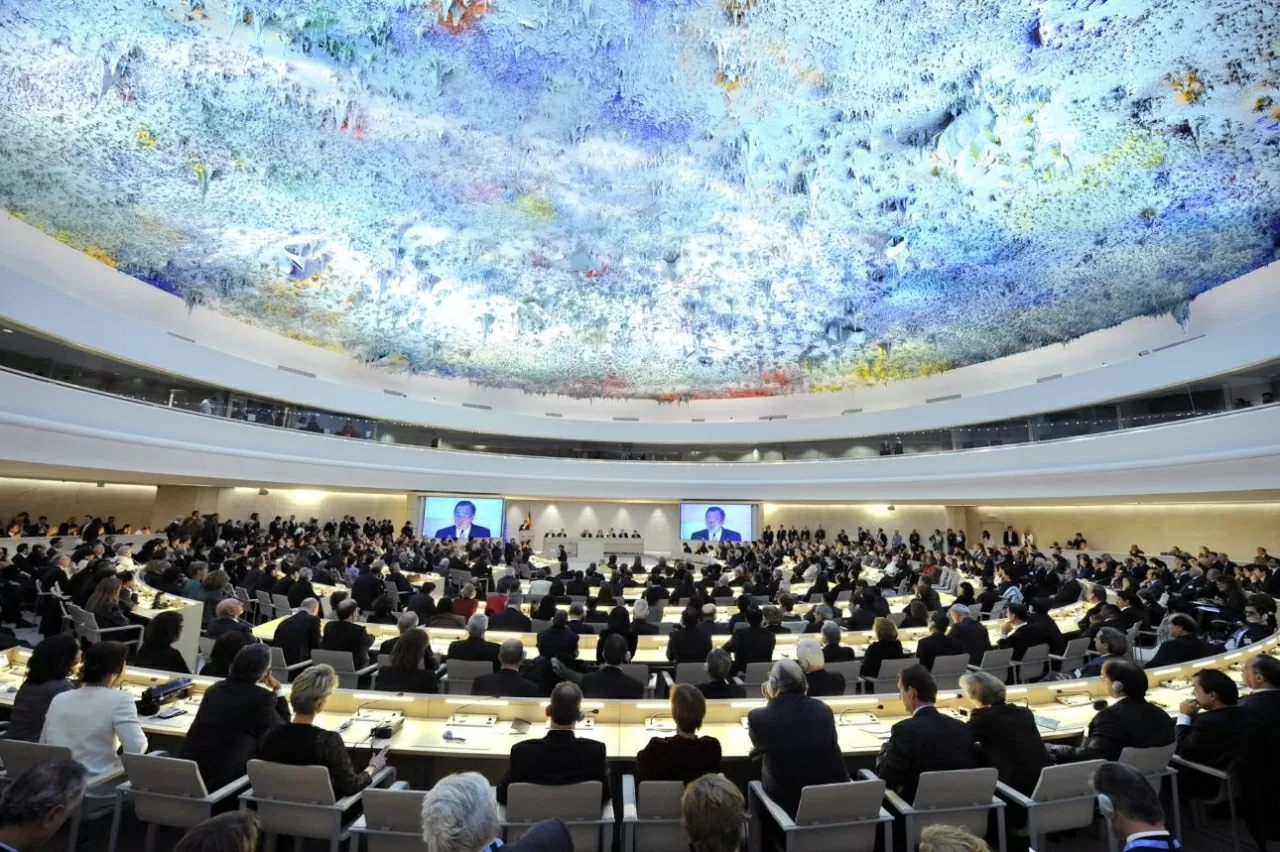
32 resolution adopted at Human Rights Council's 58th session
Latest
In these texts, among other things, the Council voted to extend 16 country specific and thematic mandates, and to establish an open-ended intergovernmental working group to draft an international legally binding instrument on the human rights of older persons.
 |
| Human Rights Council's 58th session ran from February 24 to April 4, 2025. (Photo: UN) |
In a resolution on the human rights situation in the Occupied Palestinian Territory, including East Jerusalem, and the obligation to ensure accountability and justice, the Council invited the General Assembly to consider establishing an ongoing international, impartial and independent mechanism to assist in the investigation and prosecution of persons responsible for the most serious crimes under international law committed by all parties in the Occupied Palestinian Territory, including East Jerusalem, and Israel since 2014. The Council also adopted resolutions on human rights in the occupied Syrian Golan, the right of the Palestinian people to self-determination, and on Israeli settlements in the Occupied Palestinian Territory, including East Jerusalem, and in the occupied Syrian Golan.
The Council extended 13 country mandates during the 6-week session. It decided to extend, for a period of one year, the mandate of the Commission on Human Rights in South Sudan under agenda item two. It also extended, for a period of one year, the mandates of the Special Rapporteur on the situation of human rights in the Democratic People’s Republic of Korea; the Special Rapporteur on the situation of human rights in Belarus and the Group of Independent Experts on the Situation of Human Rights in Belarus; the Special Rapporteur on the situation of human rights in Myanmar; the Special Rapporteur on the situation of human rights in the Islamic Republic of Iran and the Independent International Fact-Finding Mission on the Islamic Republic of Iran; the Independent International Commission of Inquiry on Ukraine; and the Independent International Commission of Inquiry on the Syrian Arab Republic under agenda item four.
Under agenda item 10, the Council extended for a period of one year the mandates of the Independent Expert on the situation of human rights in Mali; and the independent human rights expert appointed by the High Commissioner and tasked with undertaking the monitoring of the human rights situation in Haiti. It also extended, for a period of two years, the mandate of the Group of Human Rights Experts on Nicaragua; and the capacity of the Office of the High Commissioner, including its field-based structure in Seoul, to allow the implementation of relevant recommendations made by the group of independent experts on accountability for human rights violations in the Democratic People's Republic of Korea in its report, under agenda item four.
The Council decided to extend, for a period of three years, the mandates of the Special Rapporteur on freedom of religion or belief, the Special Rapporteur on the right to food, and the Special Rapporteur on the promotion and protection of human rights and fundamental freedoms while countering terrorism.
The Council requested its Advisory Committee to prepare, in close cooperation with the Special Rapporteur on the negative impact of unilateral coercive measures, an in-depth study review on the negative impact of unilateral coercive measure on the right to health of individuals in vulnerable situations. It also requested its Advisory Committee to draft a set of recommended guidelines for applying the existing human rights framework to the conception, design, development, testing, use and deployment of neurotechnologies.
Further resolutions adopted concerned cultural rights and the protection of cultural heritage; the negative impact of the non-repatriation of funds of illicit origin to the countries of origin on the enjoyment of human rights; human rights, democracy and the rule of law; the question of the realisation in all countries of economic, social and cultural rights; the promotion of the enjoyment of the cultural rights of everyone and respect for cultural diversity; the effects of foreign debt and other related international financial obligations of States on the full enjoyment of all human rights, particularly economic, social and cultural rights; women, diplomacy and human rights; the human right to a clean, healthy and sustainable environment: ocean and human rights; the impact of anti-personnel mines on the full enjoyment of all human rights; human rights defenders and new and emerging technologies; combatting intolerance, negative stereotyping and stigmatisation of, and discrimination, incitement to violence and violence against, persons based on religion or belief; and technical assistance and capacity-building for South Sudan.
The Council appointed three members of the Expert Mechanism on the Rights of Indigenous Peoples: Member from Central and Eastern Europe, the Russian Federation, Central Asia and Transcaucasia, Antonina Gorbunova (Russian Federation); Member from Central and South America, and the Caribbean, Anexa Brendalee Alfred Cunningham (Nicaragua); and member from the Pacific, Valmaine Toki (New Zealand).
The Council also adopted ad referendum the draft report of the fifth-eighth session.
Jürg Lauber, President of the Human Rights Council, said the Council had reviewed and adopted the results of the Universal Periodic Review of 14 countries; adopted 32 resolutions; and appointed three mandate holders of the Expert Mechanism on the Rights of Indigenous Peoples. He expressed sincere gratitude to the Bureau of the Council, the Secretariat, and the Member States, for their support and cooperation during the session.
The 59th regular session of the Human Rights Council is scheduled to be held from 16 June to 11 July 2025.
















